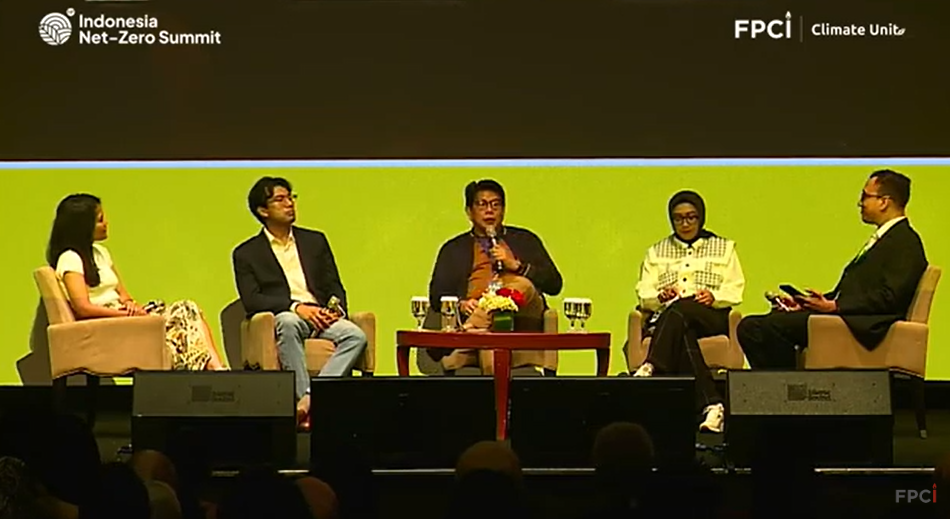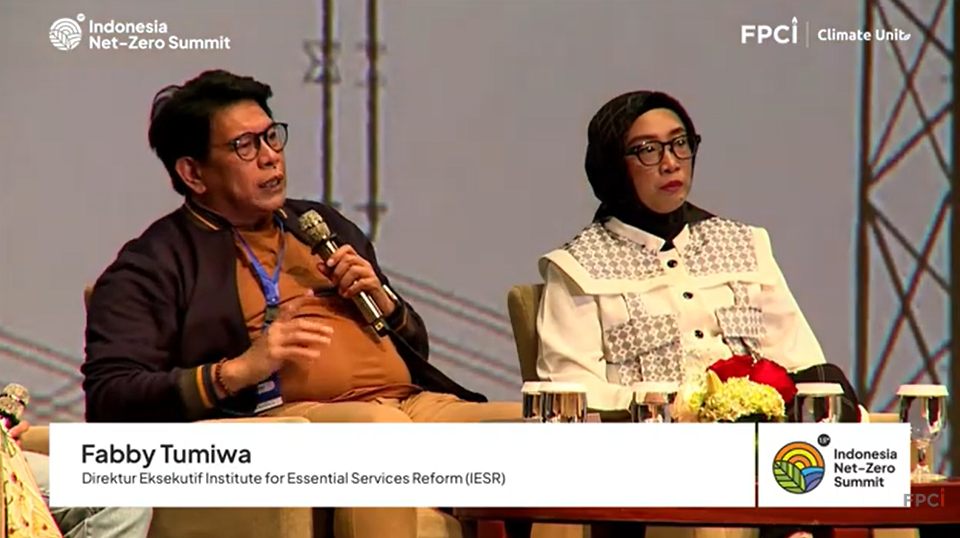Jakarta, 27 August 2024 – In the midst of an increasingly urgent climate crisis, Indonesia faces major challenges in decarbonizing, particularly in relation to its dependence on fossil energy and existing energy infrastructure. To achieve rapid and large-scale decarbonization, Indonesia needs to overcome various structural challenges. This was revealed by the Executive Director of the Institute for Essential Services Reform (IESR), Fabby Tumiwa at the Indonesia Net Zero Summit 2024 organized by Foreign Policy Community Indonesia (FPCI) on Saturday (24/8/2024).
“For example, the average age of coal power plants (CFPP) in Indonesia is currently between 12 to 14 years, which is still young compared to the economic age (of CFPP, red) which generally reaches 30 years. When Indonesia wants to early phase-out of coal fired power plants at its economic age, economic compensation is needed (someone has to pay, red) because there is an investment value that has not been returned. Besides that, government data shows that around 99 percent of Indonesia is electrified, but there are still 1.6 percent who do not have access to electricity.This challenge is further worsen by the inequality of energy access in remote areas, which often do not get electricity supply 24 hours a day,” Fabby added.
Furthermore, Fabby said, another challenge faced by Indonesia is the high cost of providing electricity in remote areas, particularly the underdeveloped, frontier and outermost (3T) areas. The development of electricity infrastructure in these areas, including fuel costs, is very expensive. Ironically, the electricity subsidies received by these areas are often lower, making the income earned is not proportional to the costs incurred.

“This complexity makes Indonesia’s energy transition more difficult compared to other countries. Indonesia’s vast territory and diverse geographical conditions add to the challenges of achieving rapid and effective decarbonization. Therefore, innovation is needed in technology and policy development to support a more inclusive and sustainable energy transition,” Fabby said.
Fabby mentioned, the Indonesian government has so far tried to meet the needs of electricity access, particularly in remote areas. However, innovative measures and new approaches are urgently needed to ensure that the energy transition can address existing challenges and lead Indonesia towards a greener and more sustainable future.
“Indonesia also has considerable technical potential for renewable energy, at least 7,879.4 GW based on IESR’s Beyond 443 GW study. For this reason, I would like to encourage the importance of renewable energy development at the community scale, not just focusing on large-scale development. For instance, we can develop power plants at the scale of mini hydro, micro hydro, pico hydro, where the technology also exists and is cheap. This energy transition effort can be done through mutual cooperation when each community utilizes the potential of renewable energy in its area,” Fabby explained.

